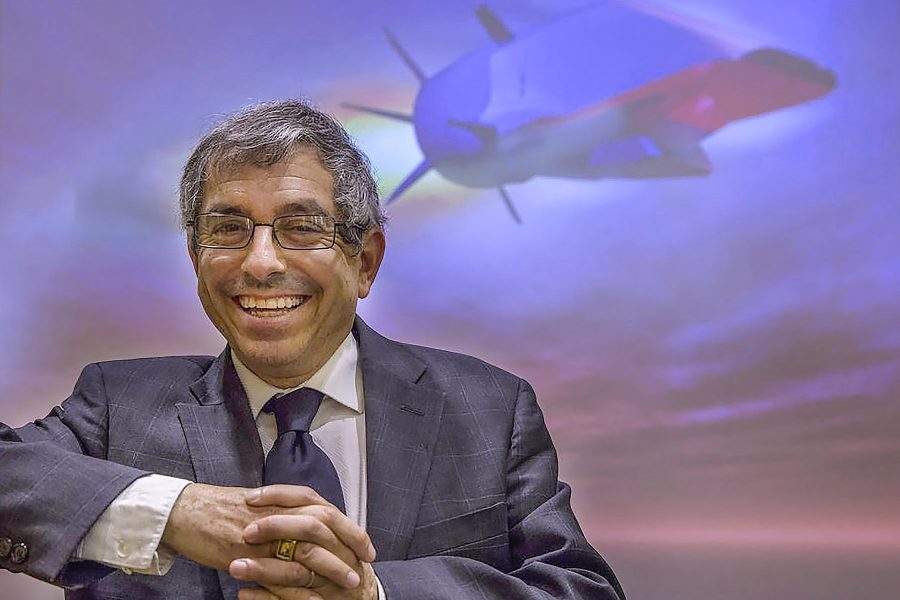Mark Lewis, former chief scientist of the Air Force, has signed on as the new director of defense research and engineering for modernization, a Pentagon spokesman confirmed.
Lewis will be deputy to Undersecretary of Defense for Research and Engineering Mike Griffin, former head of NASA. Lewis started effective Nov. 4.
An expert in hypersonics, propulsion, and space vehicle design and optimization, Lewis is also temporarily wearing the hat of assistant director for space, following the departure of Derek Tournear to be the permanent director of the Space Development Agency.
Pentagon officials said Lewis has been brought in to rationalize the many disparate hypersonics programs being pursued by the Air Force, Army, and Navy, as well as to provide a focus for the department’s other marquee technologies. In March 2018, Griffin told a McAleese/Credit Suisse symposium that, “if I had to pick my highest technology priority, [hypersonics] would be it. … There has to be a first, and hypersonics is my first … We need to get on with it.”
Lewis “has oversight of the 11 technical or assistant directors assigned to” the Pentagon’s top 12 technology priorities, the spokesman said. Those include hypersonics; artificial intelligence/machine learning; space; 5G; biotech; autonomy; cyber; directed energy; fully networked command, control, and communications (FNC3); microelectronics; and quantum science. Lewis will manage those directors “and their roadmaps: the comprehensive strategies to manage, provide oversight, and guide choices for each priority area,” the spokesman said.
He was heavily involved with the X-51 Waverider project, which produced more than 200 seconds of sustained, air-breathing, hypersonic flight in 2013.
He was Air Force chief scientist from 2004 to 2008, and he served as president of the American Institute of Aeronautics and Astronautics from 2010-2011. Until recently, he was the director of the Institute for Defense Analyses Science and Technology Policy Institute, and held a faculty position at the University of Maryland for 24 years. He’s served on advisory boards for NASA and the Defense Department, as well as on the Air Force Scientific Advisory Board.
He earned two Bachelors of Science, a Master’s and a Doctorate in aeronautics and astronautics from the Massachusetts Institute of Technology. In 2018, Lewis received the AFA Theodore von Karman award for leadership in aeronautical sciences.
